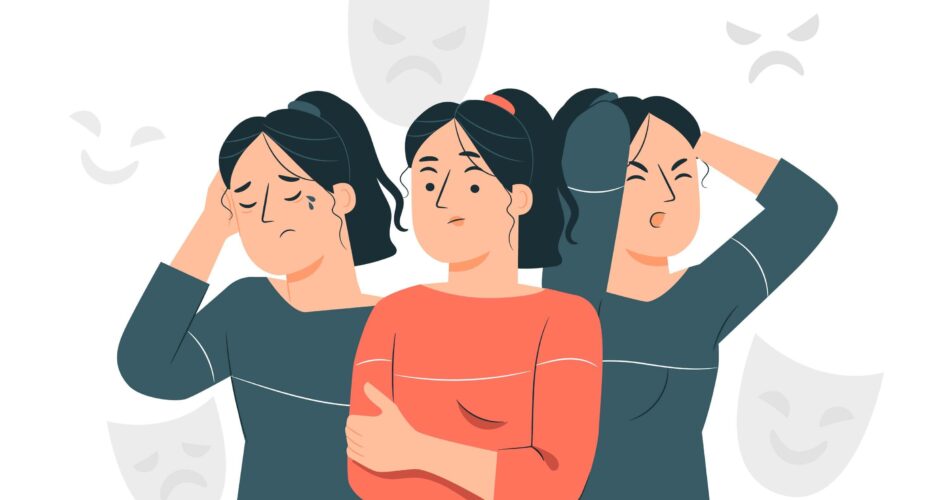Dealing with teenage depression is a complex situation that needs necessary support. With proper guidance, It helps the individuals to navigate their situation well. However, to do so, identifying the signs is a must.
This article aims to provide a comprehensive overview, and how it can impact their life. Find out every detail on how to manage this type of depression today. Let’s begin!
Understanding Teenage Depression

Teenage depression is more than just feeling sad or being in a bad mood. It is a persistent and overwhelming feeling of sadness, hopelessness, and despair that can interfere with a teenager’s daily life. While some level of moodiness is considered normal during adolescence, depression goes beyond normal teenage ups and downs.
Commonly, adolescents who are experiencing depression may find it difficult to concentrate on schoolwork or enjoy activities they once found pleasurable. They may withdraw from friends and family, preferring to spend time alone. Furthermore, sleep disturbances, such as insomnia or excessive sleeping may occur. Thus, showing its impact to the day-to-day activities of an individual.
The Science Behind Teenage Depression
Depression in teenagers is believed to be caused by a combination of reasons. This illness is believed to be an influence of neurotransmitters, such as serotonin and dopamine. It plays a crucial role in regulating mood, and an imbalance in these chemicals can contribute to the development of depression.
Furthermore, research has shown that the teenage brain undergoes significant changes during adolescence. The prefrontal cortex, responsible for decision-making and emotional regulation, is still developing, making teenagers more susceptible to mood disorders like depression.
Meanwhile, other reasons involve trauma, abuse, or stressors like academic pressure or social isolation. Teens are at a higher risk of developing depression with those ongoing factors. It is important to address each in order to effectively treat teenage depression.
The Difference Between Teenage Depression and Adult Depression

While teenage depression shares many similarities with adult depression, there are some key differences. Teenagers may express their depression differently, often showing more irritability or anger rather than sadness. They may also experience physical complaints like headaches or stomachaches.
Moreover, the social and developmental challenges that teenagers face can exacerbate their depression. Peer pressure, body image issues, and the desire for independence can all contribute to the complexity of teenage depression.
In addition, teenagers may be more apt to engage in risky behaviors, such as substance abuse or self-harm, as a way to cope with their emotions. It is important to recognize these differences in order to effectively identify and address teenage depression.
Identifying Signs of Teenage Depression

Recognizing the signs and symptoms of teenage depression is crucial for early intervention and treatment. It is essential for parents, teachers, and caregivers to be vigilant and aware of any changes in an adolescent’s behavior or mood. That’s because of its significant impact on their daily lives, relationships, and overall well-being. By understanding the signs and symptoms of depression, we can provide the necessary support and help teenagers navigate through this challenging time.
Behavioral Changes to Look Out For
Teenagers experiencing depression may exhibit various behavioral changes. They may withdraw from activities they once enjoyed, isolate themselves from friends and family, or have difficulty concentrating and making decisions. It is common for teenagers with depression to experience a loss of interest in school, hobbies, or extracurricular activities they once found enjoyable.
Furthermore, these behavioral changes can also extend to their social interactions. Depressed teenagers may become more socially withdrawn, avoiding social gatherings and isolating themselves from their peers. They may also have trouble maintaining relationships and may exhibit a lack of enthusiasm or engagement in conversations.
In addition to these changes, teenagers with depression may also display signs of self-destructive behavior. This can include engaging in risky activities, substance abuse, or self-harm. It is crucial to be aware of these behaviors and seek professional help immediately if they are observed.
Changes in appetite and sleep patterns are also common symptoms. Some teenagers may experience an increase or decrease in appetite, while others may have trouble falling asleep or may sleep excessively. These changes can further exacerbate their emotional well-being and overall functioning.
Emotional Symptoms of Teenage Depression
Emotionally, teenagers with depression often experience persistent feelings of sadness, hopelessness, and worthlessness. They may have frequent crying spells, feel irritable or angry, and have a negative outlook on life. Teenagers with depression may have difficulty experiencing pleasure, express feelings of guilt or self-blame, and frequently complain of being bored.
Depression can also impact a teenager’s self-esteem and confidence. They may have a distorted perception of themselves, believing they are unworthy or unlovable. These negative thoughts and feelings can contribute to a cycle of self-doubt and further worsen their mental health.
Furthermore, depression can also affect a teenager’s ability to regulate their emotions. They may experience sudden mood swings, feeling overwhelmed by even minor stressors. This emotional instability can make it challenging for them to navigate through their daily lives and maintain healthy relationships.
Physical Signs That May Indicate Depression
While depression is primarily a mental health issue, it can also manifest in physical symptoms. Teenagers with depression may complain of headaches, stomachaches, or other unexplained pains. These physical symptoms can often be a manifestation of the emotional distress they are experiencing.
In addition to pain, depression can also impact a teenager’s energy levels. They may experience significant changes in their energy levels, feeling excessively fatigued or lacking energy even after adequate rest. This constant state of exhaustion can further contribute to their feelings of hopelessness and hinder their ability to engage in daily activities.
It is important to note that these signs and symptoms may vary from person to person, and not every teenager will exhibit all of them. However, by being aware of these indicators, we can better support teenagers who may be struggling with depression.
The Impact of Teenage Depression on Daily Life
While it is normal for teenagers to experience occasional mood swings, depression goes beyond the typical ups and downs of adolescence. Here are some of the situations that depression may affect:
Effects on Academic Performance
Depression can significantly impact a teenager’s academic performance. Lack of motivation, difficulty concentrating, and a general sense of apathy can make it challenging for teenagers with depression to stay engaged in schoolwork. The weight of depression can feel overwhelming, making it difficult for them to focus on their studies.
Furthermore, depression can disrupt sleep patterns, leading to fatigue and decreased cognitive functioning. This can result in a decline in grades, missed assignments, and an overall negative impact on their educational journey. It is crucial for educators and parents to recognize the signs of depression and provide appropriate support to help teenagers manage their academic responsibilities.
Impact on Social Interactions and Relationships
Teenage depression can often result in social withdrawal and isolation. A teenager with depression may struggle with maintaining friendships, participating in social activities, and may generally have difficulty connecting with others. The constant feelings of sadness and emptiness can make it challenging for them to engage in social interactions.
As a result, they may feel alienated from their peers, leading to a sense of loneliness and isolation. The fear of being judged or misunderstood can further exacerbate their social disconnection. It is essential for friends, family members, and educators to create a supportive environment where teenagers feel comfortable expressing their emotions and seeking help.
Influence on Personal Growth and Development
Teenagers with depression may experience delays or disruptions in their personal growth and development. The challenges they face can interfere with their ability to learn important life skills, develop a sense of identity, and navigate the transition into adulthood.
Depression can make it difficult for teenagers to envision a positive future and set goals for themselves. They may struggle with low self-esteem and have a distorted perception of their abilities. It is vital to offer support and guidance during this crucial period of their lives, helping them develop coping mechanisms and resilience to overcome the obstacles posed by depression.
By addressing the impact of teenage depression on academic performance, social interactions, and personal growth, we can create a more compassionate and understanding society. It is essential to prioritize mental health and provide the necessary resources and support systems to help teenagers navigate the challenges of depression.
Offering Support to Teens Struggling with Depression

When it comes to offering support to teenagers struggling with depression, a multi-faceted approach is often necessary. Creating a supportive environment and providing access to the right resources can make a significant difference in a teenager’s recovery process.
Teenage years can be challenging, as adolescents navigate the complexities of their changing bodies, relationships, and academic pressures. It is during these times that support from friends, family, and professionals becomes crucial.
How to Approach Conversations About Depression
Starting a conversation about depression with a teenager can be challenging, but it is essential to approach the topic with empathy and understanding. Create a safe and non-judgmental space for them to express their feelings and experiences. Let them know that their emotions are valid and that you are there to listen and support them.
It is important to remember that depression is not a choice or a sign of weakness. By approaching conversations about depression with compassion, you can help reduce the stigma surrounding mental health and encourage open dialogue.
Providing Emotional Support and Understanding
Offering emotional support is crucial for teenagers dealing with depression. Encourage them to express their emotions freely, and validate their experiences. Avoid minimizing or dismissing their feelings and provide words of encouragement and reassurance. Help them build healthy coping mechanisms and self-care routines that can contribute to their well-being.
One way to provide emotional support is by engaging in activities that your teenager enjoys. Whether it’s going for a walk, playing a board game, or simply sitting down for a heartfelt conversation, spending quality time together can help strengthen your bond and provide a sense of comfort.
The Role of Professional Help and Therapy
While the support of friends and family is vital, it’s important to recognize that professional help is often necessary to effectively address teenage depression. Encourage your teenager to seek therapy, as therapists are trained to provide specialized assistance in managing depression. Therapy can help teenagers develop coping mechanisms, learn to challenge negative thought patterns, and ultimately regain control of their lives.
There are various types of therapy available, such as cognitive-behavioral therapy (CBT), which focuses on identifying and changing negative thought patterns, and interpersonal therapy (IPT), which helps teenagers improve their relationships and communication skills. A mental health professional can assess your teenager’s specific needs and recommend the most appropriate therapeutic approach.
In addition to therapy, medication may also be prescribed by a psychiatrist to help manage symptoms of depression. It is important to consult with a medical professional to determine the best course of treatment for your teenager.
Conclusion
Remember, offering support to a teenager struggling with depression requires patience, understanding, and a willingness to learn. By creating a supportive environment, providing emotional support, and encouraging professional help, you can play a significant role in their journey towards recovery and well-being.
Understand more about the complex effect of depression to adolescents. Seek a medical profession for proper guidance and approach to this condition. Book an online consultation now!



